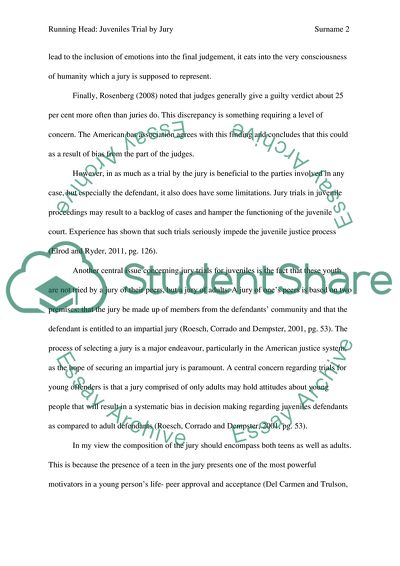Love Juvenile Justice Essay Example | Topics and Well Written Essays - 500 words. Retrieved from https://studentshare.org/law/1589247-love-juvenile-justice
Love Juvenile Justice Essay Example | Topics and Well Written Essays - 500 Words. https://studentshare.org/law/1589247-love-juvenile-justice.


